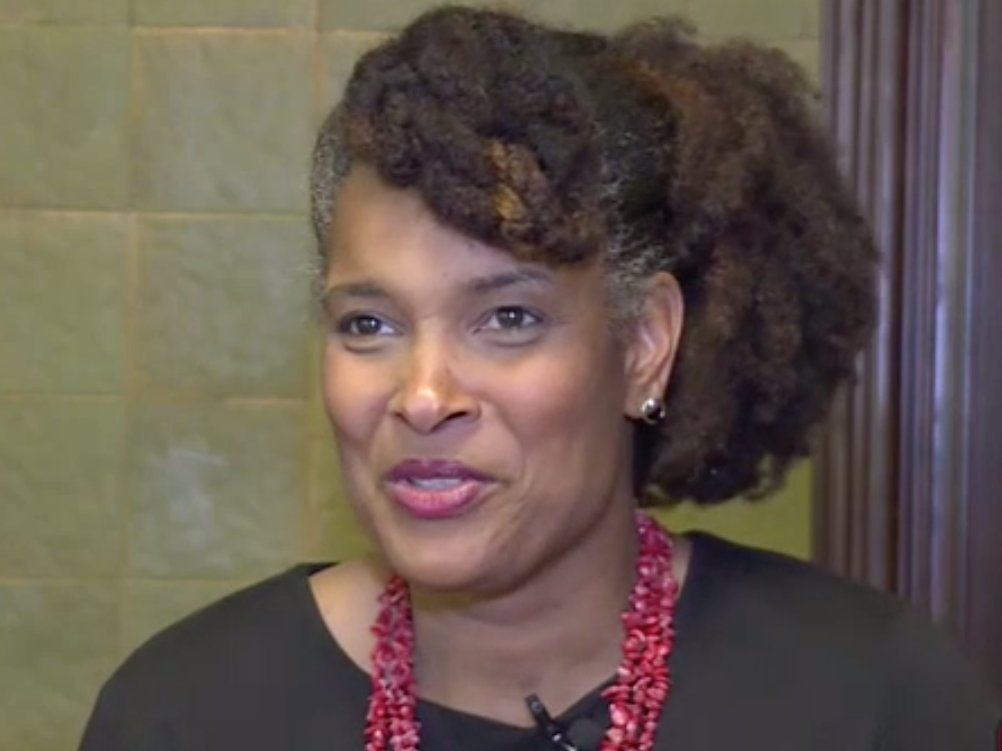- Marijuana Pepsi Vandyck just received her PhD in higher education leadership.
- She studied how teacher and fellow student behavior towards children with unusual names can impact their emotional and academic outcomes.
- “So it’s not so much my name, it’s the names of students that have an impact on their academic achievement just because of the implicit biases that sometimes accompany their teachers,” Vandyck told WIFR.
- She said her mother believed her name would take her around the world, and that she’d never change it to “make other people happy.”
- Visit INSIDER’s homepage for more stories.
Marijuana Pepsi Vandyck just received her PhD in higher education leadership, with a dissertation on teacher behaviors and student perceptions of unusual names.
She told NPR that in the black community, it’s fairly common to have names that are more cultural, so she interviewed students about their experiences having names others may think of as different.
But while she thought her name was beautiful when she was younger, growing up around white teachers and students started to make her feel more insecure about it. One teacher even wrote her name as “Mary” on a certificate. But Vandyck’s mother, who loves her name, made sure the certificate was corrected.
“She just shared that she felt a kinship with me and she felt like this name would take me around the world,” Vandyck said.
As of last week, Marijuana Pepsi is now Dr. Marijuana Pepsi Vandyck. Her dissertation focused on unusual names, naturally. https://t.co/xGmtKbjA7O
— NPR (@NPR) June 24, 2019
Vandyck told WIFR that she decided to study how the school environment can impact students' emotional and academic outcomes if they have a distinctly black name. But it wasn't because of her own experiences - she thought of the idea when another teacher assumed her class's tests score were going to be low just by looking at a list of names.
"So it's not so much my name, it's the names of students that have an impact on their academic achievement just because of the implicit biases that sometimes accompany their teachers," Vandyck said.
"We all have things that we hear and we look sideways at and go, 'okay did I just see that,' and we form those opinions and there's nothing wrong with that, we're human that's what we do ... It's what we do after that, that makes the difference for our students."
During her research at Cardinal Stritch University in Milwaukee, one of her participants said the main problem is that white people "like things standardized, and that includes names."
So Vandyck wants educators to be more accepting of names they may consider strange or unusual, and hopes her story can be part of making that happen.
"If you're curious about it, feel free to ask," she told NPR. "Perhaps not in front of the other 25 students. Don't ask who named them in a condescending manner."
She added that she's really proud of her name now, and she wouldn't ever change it for anyone.
"We can't always go through life changing things to make other people happy," she said. "I had to learn that early on."
Her name may grab your attention, but it's her story of achievement and determination that will impress you! Congratulations on all of your success Dr. Marijuana Pepsi Vandyck, '19, and thank you for making Stritch a part of your journey!https://t.co/AdQKGQsi6x
— Cardinal Stritch University (@stritchu) June 18, 2019

